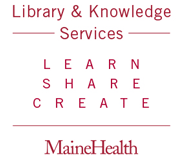Getting the SCOOP-survey of cardiovascular outcomes from oncology patients during survivorship.
Document Type
Article
Publication Date
6-2016
Institution/Department
Internal Medicine, Cardiology
Journal Title
The American journal of the medical sciences
MeSH Headings
Adrenergic beta-Antagonists, Aged, Angiotensin Receptor Antagonists, Angiotensin-Converting Enzyme Inhibitors, Cardiovascular Diseases, Exercise, Female, Health Knowledge, Attitudes, Practice, Healthy Diet, Humans, Incidence, Life Style, Male, Middle Aged, Neoplasms, Prevalence, Risk, Surveys and Questionnaires, Survivors
Abstract
BACKGROUND: Cardiovascular (CV) disease is the second most common cause of mortality and morbidity in cancer survivors (CS). Limited data exist on the knowledge and awareness of CS about CV effects of cancer therapies and its effect on lifestyle of survivors. It is important to identify gaps in CV care of CS.
MATERIALS AND METHODS: A brief voluntary, anonymous, web-based questionnaire was designed to assess the awareness of CS about the interaction between CV disease, CV symptoms and lifestyle changes from cancer treatment.
RESULTS: A total of 213 volunteers (181 women) with mean age of 56 years responded to the survey. Breast cancer was the most prevalent cancer diagnosis. In all, 15% reported CV disease before therapy with a higher incidence of CV disease in survivors more than 5 years from diagnosis (20% >5 years versus 10%survivorship, P = 0.05). The reported use of beta blockers (9%) and angiotensin-converting enzyme inhibitors or angiotensin receptor blockers (9%) was rare despite the high incidence of CV disease. Only one-fourth of survivors were offered CV screening during treatment, whereas 36% of survivors had unanswered questions about CV symptoms from therapy. The CV symptoms adversely affected lifestyle in 27% of CS. One-fifth of survivors received exercise counseling even though half would have liked counseling.
CONCLUSIONS: The survey demonstrates that CS have self-reported CV symptoms and there may be unmet needs for CV preventive services. Further work is needed to develop collaborative patient counseling and management strategies between oncology and cardiology for improving CV health and symptoms of CS.
ISSN
1538-2990
First Page
570
Last Page
575
Recommended Citation
Bhatia, Nirmanmoh; Lenihan, Daniel; Sawyer, Douglas B.; and Lenneman, Carrie G, "Getting the SCOOP-survey of cardiovascular outcomes from oncology patients during survivorship." (2016). Maine Medical Center. 410.
https://knowledgeconnection.mainehealth.org/mmc/410




Comments
Division of Cardiovascular Medicine, Department of Medicine, Maine Medical Center.